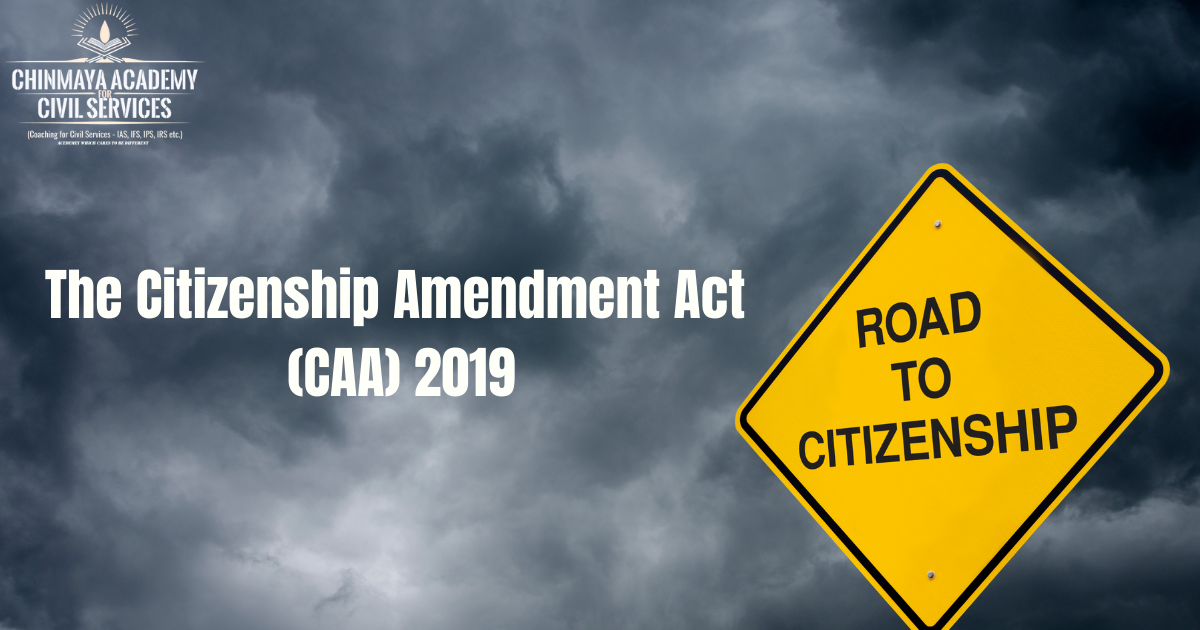
The Citizenship Amendment Act (CAA), 2019 is a Citizenship Law passed by the Indian Parliament on December 11, 2019. It amends the Citizenship Act, 1955 to provide a fast track to Indian citizenship for persecuted religious minorities from Afghanistan, Bangladesh, and Pakistan. The Ministry of Home Affairs (MHA) sought nine extensions from a parliamentary committee to frame rules that will govern the Act.
Key points

- Eligibility:Hindus, Sikhs, Buddhists, Jains, Parsis, and Christians who entered India before December 31, 2014, and who claim to have faced religious persecution in their home countries are eligible for Indian citizenship.
- Benefits:Eligible individuals can apply for Indian citizenship after six years of residence in India, instead of the usual 11 years.
- Exclusion:Muslims from the same countries are not eligible for citizenship under the CAA.
- Implementation:the legislation is yet to be implemented despite the administrative framework in place as it awaits a political nod from the Ruling Union government.
Controversies surrounding the CAA
- Discrimination:The CAA has been criticized for being discriminatory against Muslims, as it excludes them from the fast track to citizenship. This is seen as a violation of Article 14 of the Indian Constitution, which guarantees equality before the law.
- National Register of Citizens (NRC):The CAA is seen by many as a precursor to a nationwide National Register of Citizens (NRC), which would require all Indian citizens to prove their citizenship. Critics fear that the NRC could be used to disenfranchise Muslims and other marginalized groups.
- Protests:The CAA has sparked widespread protests across India, particularly among Muslims and other minorities. These protests have often been met with police crackdowns.

Impact
- The CAA has had a significant impact on Indian politics and society. It has deepened existing divisions between religious communities and has led to increased polarization.
- The CAA has also strained India’s relations with its neighbours, particularly
Current status
Four years after the Citizenship Amendment Act (CAA), 2019, was passed by Parliament, the legislation is yet to be implemented despite the administrative framework in place as it awaits a political nod from the Ruling Union government.
Additional points to consider
- The CAA is a complex and controversial issue with a wide range of perspectives.
- It is important to be aware of the different arguments for and against the law before forming an opinion.
- The Supreme Court’s decision on the CAA will have a significant impact on India’s future.
 Chinmaya IAS Academy – Current Affairs Chinmaya IAS Academy – Current Affairs
Chinmaya IAS Academy – Current Affairs Chinmaya IAS Academy – Current Affairs
